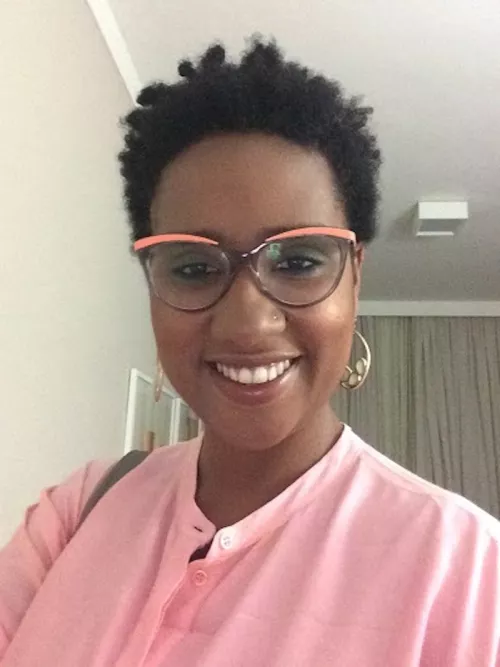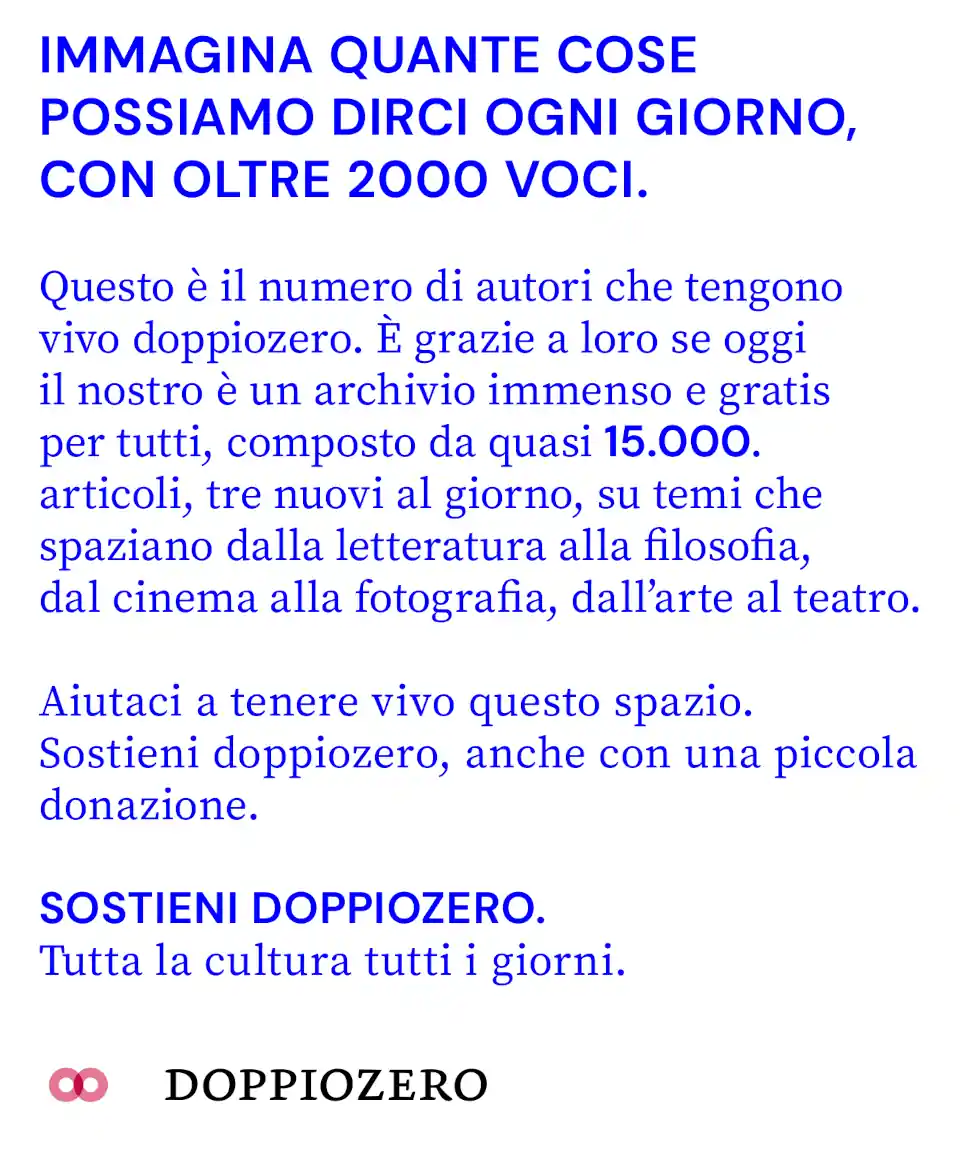Speciale
A poetic voice of the female cultural practitioners / In/visible voices of women
![]()
In 2016, Another Africa launches the ongoing series ‘In/Visible Voices of Women’, conceived by Clelia Coussonnet and Missla Libsekal. It looks to women practitioners, to explore through their poetic voices what is particular to this epoch. Rather than imposing a rubric and aiming to disrupt labels, the series begins with the notion of being ‘in/visible’, and paves the way for these cultural practitioners’ voices to determine the message while contributing to the existing corpus of material on women artists. In so doing, and through their practice and engagements, we probe the possibility that what rises to the surface, is indeed some of the most urgent and pertinent questions of our contemporary condition.
The artist interview series launching spring 2016 include practitioners engaged and connected to Francophone North Africa.
lettera27 and Why Africa? are happy to partner with Another Africa on re-publishing the series. Below is the third article on the topic.
Published on Another Africa on April 11th 2016 in Art & Culture, Interviews.
What is the role of women in the production of information and knowledge?
Malala Andrialavidrazana
This may sound naive, but before becoming fully constructive actors, women must rebuild a positive image for themselves by gaining back an awareness of their status as citizens just like everyone else (with rights, duties, opinions). They must remember that they make up almost half the air (breath), and the energy of humanity. Therefore, they have a great responsibility to eradicate gender-based attitudes and stereotypes which do not only lead to the marginalisation of many of them, but also to much suffering that affects the society as a whole in the end. In short, their role consists notably in correcting errors of judgement that are no longer acceptable, in outing subservient structures, in guiding the eyes towards more openness, and in promoting equality in the democratic sense. The task may seem daunting, but it is a necessary evil to be able to speak freely, and to defend their positions when it will prove to be useful, and vital.
Malala Andrialavidrazana is a visual artist with a background in architecture. She is interested in notions of frontiers and interactions within cross-cultural contexts. Primarily through photography, she digs behind scenes in a succession of back and forth between private spaces and global issues to explore social imaginaries. She invents a language whose approach is resolutely turned towards History but whose engagement in the City remains active. In her collection of visuals, examining the in-between space in a multitude of heres and nows, she proposes an open frame where borders do not exist.
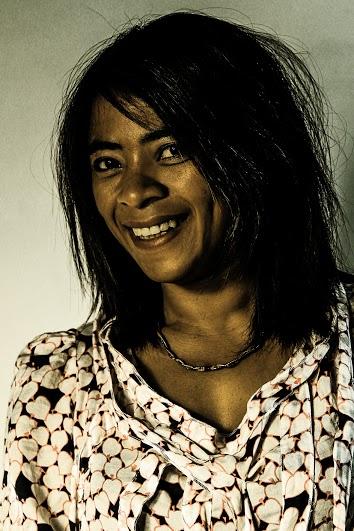
Malala Andrialavidrazana.
Angèle Etoundi Essamba
Naturally, women are the keepers of knowledge. They transmit it through raising and educating their children, and thanks to the important role they play in their communities. Naturally, this also translates into other areas where information and knowledge are of major importance, such as in art and business.
Angèle Etoundi Essamba (b. Cameroon, raised in France) graduated from the Photo Academy of Amsterdam where she lives. Since her first exhibition in 1985 in Amsterdam, her work continues to be exhibited in museums, institutions, art fairs, biennales and galleries in Africa, Europe, the United States, Latin America, Arab Emirates and Asia. Essamba’s work lies at the intersection of the social/gender and the artistic field. She joins the spirit of humanistic photography with a strong attachment to the values of communion. She is a committed artist involved in a reflection on the identity of the African woman. Keywords for Essamba’s work are: pride, strength and awareness.
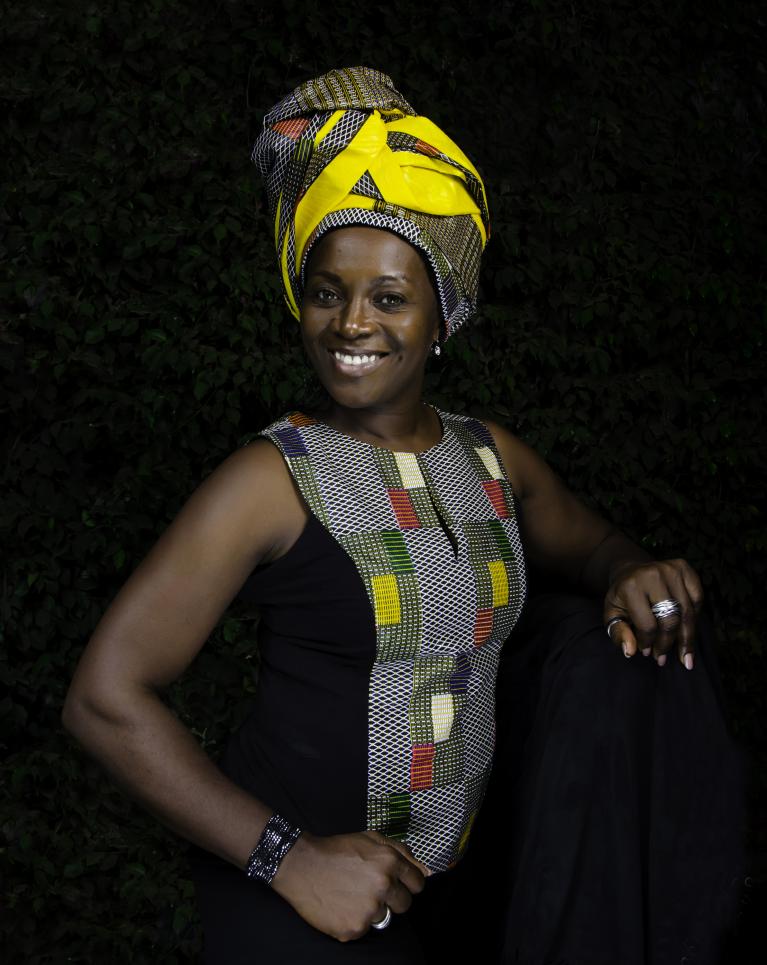
Angèle Etoundi Essamba, ph Daouda Timera.
N’Goné Fall
Women have the same role as men. Artists and curators have to be go-betweens. It is all about producing and sharing. How do we look at the world, how do we perceive it, and how do we share our points of view as artists, curators and art critics with the audience? How do we build projects that will give the audience something to think about? I still believe that art has the power to impact mentalities by questioning our societies. It could sound naive, but I do believe it. And the moment I will stop believing in that, I will go back to architecture.
N’Goné Fall graduated with distinction from the École Spéciale d’Architecture in Paris. She is an independent curator, essayist and a consultant in cultural policies. She has been the editorial director of the Paris-based contemporary African art magazine Revue Noire from 1994 to 2001. Fall has edited books on contemporary visual arts and photography and curated exhibitions in Africa, Europe and the USA. She was a guest curator of the African photography encounters in Bamako in 2001 and the Dakar contemporary art biennial in 2002. As a consultant in cultural policies she is the author of strategic plans, orientation programmes and evaluation reports for national and international cultural institutions and art foundations. Fall has been an associate professor at the Senghor University in Alexandria, Egypt (master department of creative industries) from 2007 to 2011. She is a founding member of the Dakar-based collective GawLab, a platform for research and production on art in public spaces and technology applied to artistic creativity.
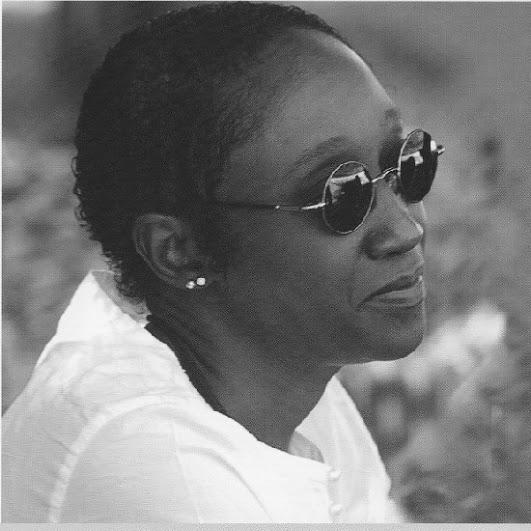
N’Goné Fall.
Tamar Garb
Women are key agents in the rewriting of history and the reorienting of knowledge. To look from a woman’s point of view is to stipulate an alternative viewing position from which to ask questions and to map a terrain of thinking. Feminism has taught us that the received narratives and plot-lines of the past recount only a partial story, one in which women serve as reproductive vehicles and sexual trophies, rather than productive agents. Historically, female sexuality has been made to serve the agendas of patriarchs and pimps, servicing the pleasures and needs of an economy in which women are exchanged between men (whether husbands, fathers, brothers or clients) but in which their desires and needs are often denied or dismissed. At the same time, many women have both resisted such circumscribed roles and fought alongside men to improve their lot (and that of humanity in general) and shift perceptions. It is only through feminist scholarship that such repressed stories are uncovered and that knowledge is both expanded, and reworked. By de-naturalising essentialised constructions to do with women’s ‘nature’ or aptitudes, past actions can be explained as emerging from specific social and ideological circumstances, rather than expressing ‘natural’ or god-given destinies. This opens up space for new kinds of being to be imagined in the present, so that women’s potential is not curtailed by the straight-jackets of historical conformity. Contemporary art, as much as writing or music, provides an essential platform for new forms of agency to be imagined and expressed. And women artists now join novelists and singers to voice new possibilities for being in, of and from Africa.
Tamar Garb is an art historian and curator. She is Professor of Art History at University College London and was curator of ‘Figures and Fictions, Contemporary South African Photography’, (V&A 2011) and ‘Distance and Desire: Encounters with the African Archive’ (Walther Collection, Ulm, New York, Berlin 2013.14). Amongst her publications are ‘The Painted Face: Portraits of Women in France 1814-1914 (YUP 2008) and ‘The Body in Time’ (Washington 2008).
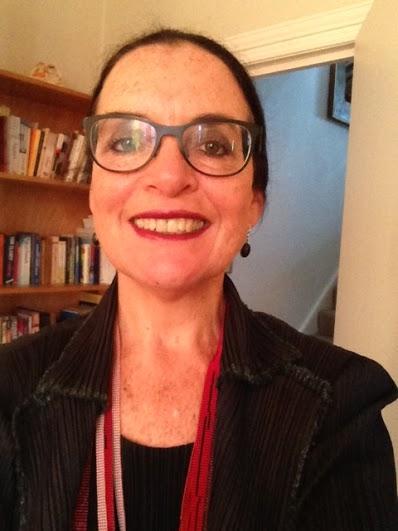
Tamar Garb.
Euridice Getulio Kala
Reference other women, and grow my/their individuality
#KoyoKouoh, #LornaSimpson, #NontobekoNtombela, #MimiCherono, #CarrieMaeWeems, #BisiSilva, #SoniaBoyce, #MarySibande, #DineoBopape, #WanjaKimani, #JustineGaga, #GabiNgcobo, #LeratoBereng, #LaurenVonGogh, #JackieKaruti, #ChristineEyene, #ZinaSaro-Wiwa, #PascaleObolo, #PamelaSanstrum, #MolemoMoiloa, #DonnaKukama, #WangechiMutu, #manyothers.
Euridice Getulio Kala (b. Maputo, Mozambique, 1987) is an artist currently based in Maputo, who’s interested in historical cultural metamorphoses, manipulations and adaptation across the period running between the late 1400s and the early 1900s, converging most times with the contemporary context. Kala employs her personal narratives and further delves into her interests, which includes her life in Johannesburg, having been a married woman and being feminist. She works with various media to achieve the finality of her ideas, from performance, video, sculptural-lyrics, installations and photography. Kala was trained as a photographer, and has shown her work in South Africa, Maputo, Amsterdam, Dakar (Off), Apt, Lisbon, Douala and been awarded residencies, both on the continent and internationally.
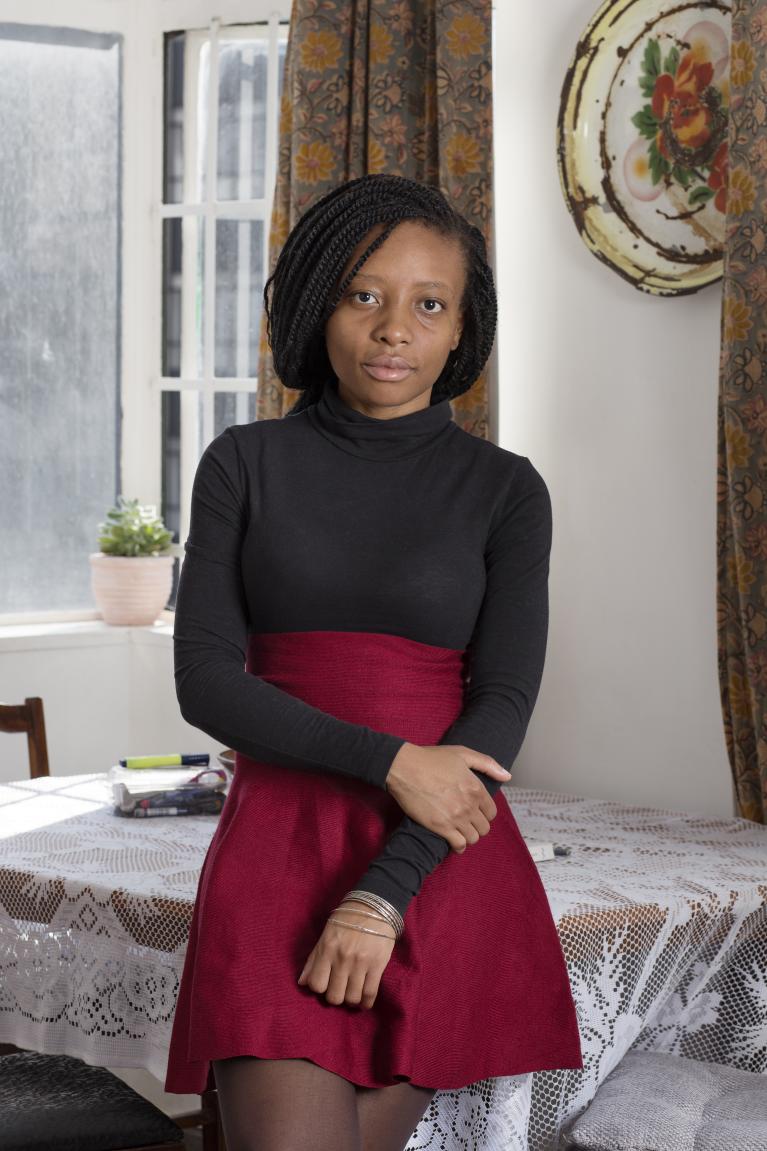
Euridice Kala.
Jessica Horn
Women, in as much as we are a part of humanity, are as much a part of information and knowledge production as men. The question is whether this is recognised. African women have been holders of aesthetic and technical knowledge around everything, from storytelling to cloth dyeing and house decoration, drumming and ritual process, to song, poetry, photography, filmmaking – you name it. That repository of creative knowledge still needs to be fully acknowledged and documented before people pass on. As the saying goes, “when a griotte dies, a whole library burns down”.
Jessica Horn is a writer, doer, interpreter of the ordinary; heiress of a lineage extending into the Ruwenzori Mountains of western Uganda and the shadows of New York’s Yankee Stadium. Horn has worked for over 15 years with NGOs, donors and the UN on the intersections of women’s health, human rights and freedom from violence. Jessica takes her passion to theorise, cultivate and engage love as a force for revolutionary transformation into activist and artistic spaces, including at TedX Euston Salon and co-curating the blog Our Space is Love. Her poetry pamphlet Speaking in Tongues is included in the Mouthmark Book of Poetry. @stillsherises
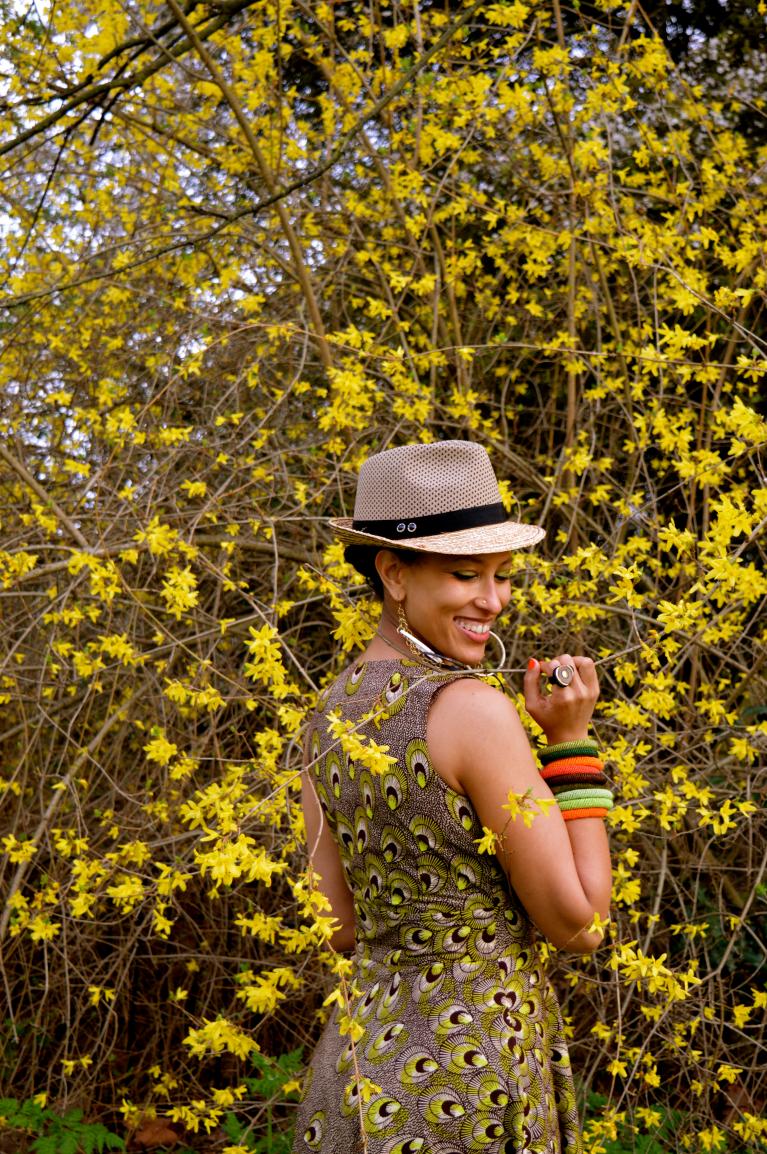
Jessica Horn, ph Aamal Said.
Valerie Kabov
I am not exactly sure of what you mean. If we are talking about participation in the information economy, then this is an interesting question, but, again, I am not sure it is a gendered question at all. What we are talking about here is access to the Internet and having adequate opportunities to use it. This is across the board an economic problem, and not a gendered one. The majority of the population in Zimbabwe does not have good access to the Internet. As a result, the minority, which does, cannot be said to be truly representative. This is a problem because it has an impact on the international perception of the country as well as having ramifications in the economic sphere. Given that more than half of the population of the country is rural, this is very significant.
Valerie Kabov is the Director of Education and International Projects at First Floor Gallery Harare, Zimbabwe, which she co-founded in 2009. Valerie holds a Masters in Curatorship and Modern Art from University of Sydney and is a doctoral candidate at University of Paris 1, Sorbonne in Art History (Cultural Policy and Cultural Economics) and is a lawyer with more than a decade of practice in international transactions, with a focus on emerging markets and intellectual property. As researcher and educator, she has focused particularly on the relationship between local and the global in the art market, as well as cultural policy and audience engagement. Kabov is the founder of Art & Dialogue, a professional continuing education programme for curators and cultural practitioners focusing on building skills in engaging diverse/multicultural audiences, and the Editor at Large for Art Africa Magazine.
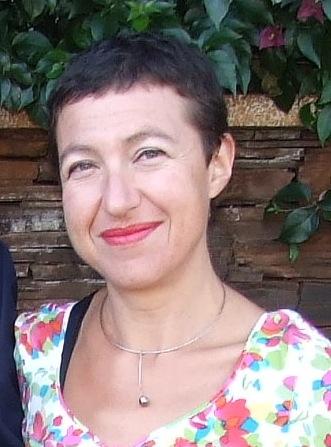
Valerie Kabov.
Marcia Kure
The role of women and our influence in the production and dissemination of knowledge is very low. But this is not because women are less competent than men. Although more women are now working in the art industry than ever before, the weight of tradition remains. For example, compared to men, there are fewer critical texts written by women about women artists, and even less about black women artists. This creates a problem on the availability of information on women artists, which invariably affects what is being taught about them in schools, as well as the quality and scope of information available to curators, gallerists and museums in their decision-making. More information on women artists is imperative in changing the status quo. As many studies have shown, women are uncomfortable in asserting their opinion in the public arena, and I think it is because it does not fit into the role society has defined for women. Also, when you are a minority voice, you begin to doubt your own competencies. Even so, women must value their knowledge and make their voices heard, because it is crucial to the attainment of a more balanced, healthier, and progressive society.
Marcia Kure is a Nigerian artist who lives and works in the USA. She trained at the University of Nigeria and is an alumna of Skowhegan School of Painting and Sculpture. Kure’s work was shown at the 11th Dak’Art, Senegal (2014) La Triennial, Paris (2013), International Biennial of Contemporary Art, Seville (2006), and Sharjah International Biennale (2005). A Research fellow of the Smithsonian Institution (2008), Visual Artist in Residence at the Victoria and Albert Museum (2014) and winner of Uche Okeke Prize for Drawing (1994). Kure’s work is in the collection of major museums in the United States and Europe. Her work was part of BODY TALK: Feminism, Sexuality and the Body in the Work of African Women Artists, WIELS Contemporary Art Center, Brussels, Frac Lorraine, France and Lunds Konsthall, Sweden (2015-16).
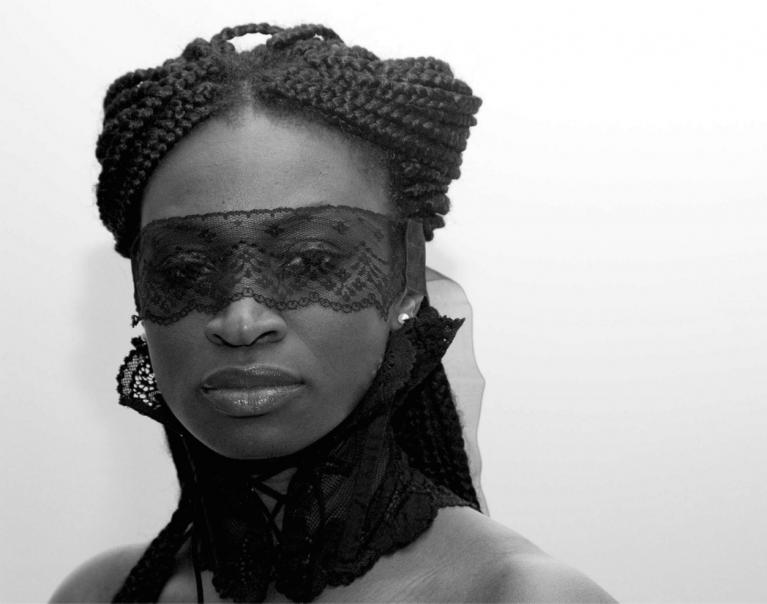
Marcia Kure, ph Chika Okeke Agulu.
Mónica de Miranda
Women’s roles have been affected by centuries of gender inequality. Women’s presence in the realm of art (be it as artists, viewers, critics, collectors and connoisseurs) has been limited in History. Women have been accepted in art, through time, mostly as subjects or, more appropriately speaking, as objects at the disposal of male artists’ act of observation. Nevertheless, during the last century, women’s accesss to higher education has become much easier in most developed countries. At the same time, the significant transformations in science and technology have also affected the participation of women in the artistic and cultural enterprise as knowledge-producers, art managers, curators, artists and educators. This has manifested especially in the last three decades, given the changes of perception towards the role of science and technology in society; scholars, cultural producers and artists have explored different sites of knowledge-production, and have highlighted the changing roles of both men and women in society, and in the arts. The role of women in the production of information and knowledge can only be only fully understood in light of the gendered cultural and social transformations of the 20th and 21st centuries.
Mónica de Miranda (b. Porto, Portugal, 1976, of Angolan descent) is an artist and researcher. PhD in visual art from the University of Middlesex (2014), she has received support from the Foundation for Science and Technology. de Miranda is one of the founders of the artistic residency project Triangle Network in Portugal and the founder of the Project Hangar (centre of artistic research in Lisbon, 2014). She has exhibited in Lisbon, London, Amsterdam, Paris, Madrid, Dubai, Rome or Singapore, and was included in the 10th Bamako Encounters, the 14th Biennial of Architecture in Venice and the Bienal de São Tomé e Principe. She has participated in various residencies in Mauritius, London, Maputo and more.
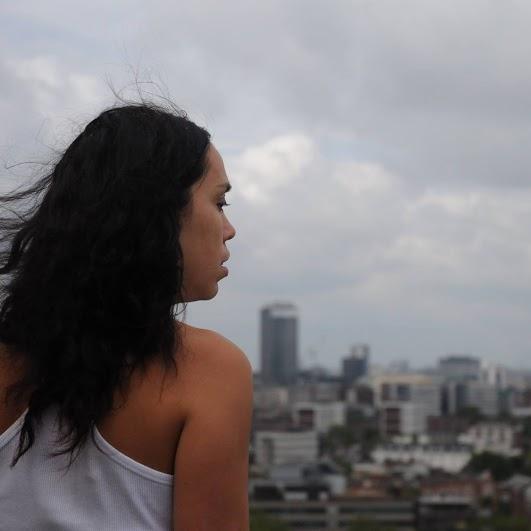
Monica De Miranda.
Suzana Sousa
Women play a major role in the field as curators, art historians, architects and designers, or doing arts and events production. There is perhaps an issue of representation and visibility, but not one of lack of female participation.
Suzana Sousa (b. Luanda, 1981) is an independent curator and writer. Her recent curatorial projects include ‘Seeds of Memory’, Angolan Pavilion (Expo Milano, 2015) and ‘Love me Love me Not – Art from the Collection Sindika Dokolo’, Biblioteca Almeida Garreth (Porto, Portugal). Sousa contributes to Contemporary &, Art+Auctions (NYC), the Goethe Institute Magazine and Arterial Network/ Arts in Africa. She is currently developing the cultural collective Pés Descalços with a group of Angolan independent spirits.
With the support of 
